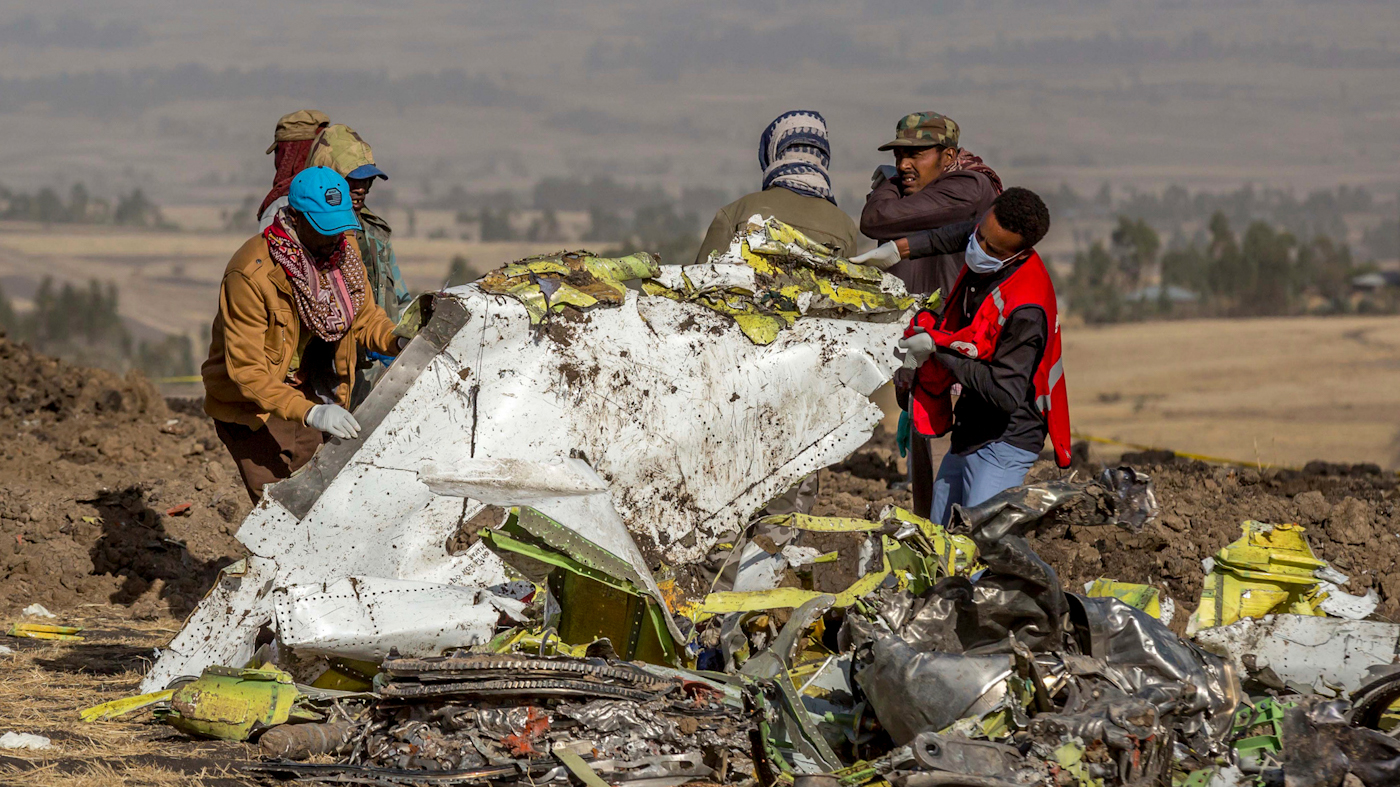CHICAGO — The fatal crash of Ethiopian Airlines Flight 302, just months after the Lion Air Flight 610 crash in Indonesia, has led to governments and airlines around the world grounding their Boeing 737 Max 8 aircraft amid concerns that, after two crashes killing 346 people, the model is unsafe to fly. Airlines are attempting to cancel their orders of the aircraft, citing public-safety fears. However, the 737 Max is already one of Boeing’s best sellers, with 376 planes delivered and an impressive 4,636 more ordered but undelivered. American, United and Southwest Airlines are among the top users of the model, although it is flown around the world by carriers such as Air Canada, Air China and the European giant Ryanair.
While the inquiry is ongoing, it has been revealed that the two planes lacked optional “extra” safety features that might have saved them from their fate. Neither the Ethiopian Airlines nor Lion Air planes were equipped with sensors or software to prevent the engine from stalling.
Why? Because Boeing charges airlines extra for them.
It transpires that such extra, non-standard features are a huge money-spinner for the aerospace giant. Some of these extras, including luxury seating or more toilets, are more comfort-oriented. However, many others are directly related to vehicle or passenger safety. For example, Boeing charges extra for a second fire extinguisher in the cargo hold, considered essential by Japanese authorities but not by the F.A.A. As one industry expert said, “There are so many things that should not be optional, and many airlines want the cheapest airplane you can get,” adding that extra safety features had become a “great profit center” for the Chicago-based manufacturer. Many carriers choose profits over safety.
Ethiopian Airlines and Lion Air didn’t pay extra for Boeing’s “upgrades” on communications, navigation, and safety features, so Boeing didn’t warn them that the planes were prone to sensor malfunctions that would send them crashing into the ground. https://t.co/2Nvka4tNVI
— Ben Taub (@bentaub91) March 21, 2019
The corporate way: protecting profits, risking lives
This is, unfortunately, the latest example of an industry constantly cutting corners in order to increase profits, in the process risking all of its passengers’ lives. Chief among the corners cut involve pilots’ pay and working conditions. Acclaimed US Airways pilot Chesley Sullenberger, who expertly landed his stricken plane in the Hudson River, testified before Congress that he had suffered a 40 percent reduction in pay and that most pilots cannot maintain a middle-class lifestyle without having to work multiple jobs on the side. His message was explicit: if this pilots’ pay slashing continues, there will be an increase in crashes.
It is not uncommon for pilots to be on food stamps or to literally make less than pizza-delivery staff. In training, pilots rack up huge levels of debt, something that airlines use as a mechanism of control. Particularly on budget airlines like Ryanair, pilots are not technically employees of the company, but on temporary contracts, allowing airlines to pay them less and provide fewer benefits. Pilots are not even entitled to a free bottle of water while working and cabin crew are threatened if they do not reach sales targets. This creates a race to the bottom, as legacy airlines have to cut costs to compete with their budget competitors.
Industries have a long history of putting their own interests before the safety of consumers, buyers or passengers. The automotive industry opposed Ralph Nader’s campaign to make seat belts mandatory and fought against the adoption of catalytic converters and airbags.
The infamous Ford Pinto case is another classic example of the brutal logic of capitalism, where corporations are by law required to maximize short-term profits and ignore all other considerations. Internal company documents showed that Ford knew its Pinto’s gas tank was highly susceptible to bursting into flames or exploding, but it calculated that the lawsuits resulting from the deaths would be cheaper than spending a few extra dollars per car remedying the problem, resulting in up to 900 people burning to death.
Bound by laws and the competition of the market, corporations cannot be trusted to put human life before profit. Freeing companies from the “red tape” of regulation will inevitably lead to a Wild West in air travel, where accidents like the Ethiopian and Lion crashes occur more frequently.
The merciless logic of capitalism is on display again with the Boeing case, with the business press advising their readers to buy more Boeing stock as the company has a near-monopolistic grip over the market such that there is no alternative; it is “too big to fail.” Boeing CEO Dennis Muilenburg personally lobbied President Donald Trump, urging him not to ground the 737 Max. After all, that wouldn’t be good for business.
Top photo | Rescuers work at the scene of an Ethiopian Airlines flight crash near Bishoftu, or Debre Zeit, south of Addis Ababa, Ethiopia, March 11, 2019. A spokesman says Ethiopian Airlines has grounded all its Boeing 737 Max 8 aircraft as a safety precaution, following the crash of one of its planes in which 157 people were killed. Mulugeta Ayene | AP
Alan MacLeod is an academic and writer for Fairness and Accuracy in Reporting. His book, Bad News From Venezuela: Twenty Years of Fake News and Misreporting was published in April.
The post Boeing 737 Max Case is Latest Example of Why Industry Can’t Regulate Itself appeared first on MintPress News.
